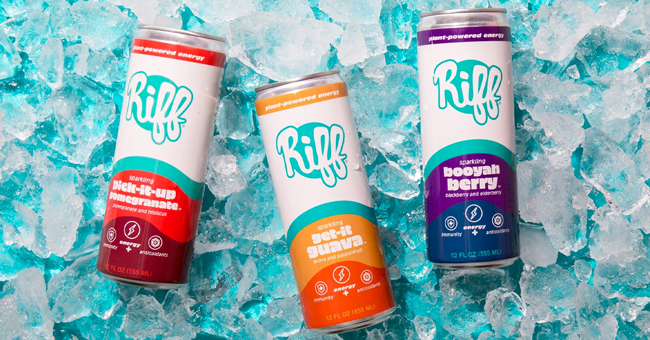Oregon-based coffee brand Riff announced today that it has closed a $2.5 million series seed round with investors including former NFL tight end Vernon Davis and Continental Grain COO and former Anheuser-Busch president Dave Peacock.
Other investors in the round include Randy Jozwiakowski, former VP of wholesaler development for Anheuser-Busch; John Gehrs, co-founder of Pacific Foods; Kevin Waters, managing director of Incite; and Steve Foltz, the largest franchisee of Jamba stores. The new investors have also joined Riff’s advisory board alongside Davis, who became involved with the company last year, and Peacock.
“[Riff’s financing has] all been and it’s continued to be angel investors, we haven’t taken on institutional capital,” said Riff co-founder and CEO Paul Evers. “It’s really been intros from our existing investors who are excited about what it is that we’re doing and the promise that we’re bringing to market. So it’s been a very organic growth of our investor community through the natural, inherent excitement.”
Riff launched in 2018 with a line of bottled cold brew coffees on the back of a $1 million angel funding round. In 2019, the company increased its focus on sustainability by creating a line of canned cascara beverages called Alter Ego, which seek to reduce waste by utilizing the coffee fruit that is typically discarded during coffee production.
Earlier this year, the company rebranded Alter Ego as Riff Energy+, relaunching the line in March in Get-It Guava, Booyah Berry and Pick-It-Up Pomegranate varieties. Since then, Energy+ has been a key focus for the brand and has expanded its footprint to about 300 retail stores in nine states in the Western U.S., while its original cold brew coffee line remains in limited distribution within the Pacific Northwest, including accounts like Fred Meyer and Safeway/Albertsons. Riff also sells a bag-in-box cold brew line on its website.
This latest financing round opened in 2019 and has provided the startup company with a stream of spendable capital to support its growth initiatives over the past two years. In May 2020, the company instituted a 20% equity kicker to attract more investors, which also coincided with the finalization of an environmental impact study Riff commissioned with Oregon State University. The study, he noted, helped to back Riff’s sustainability claims and reified its mission to use all parts of the coffee plant in its products.
“That’s really been what has fueled us, is that sense of purpose, and that’s what attracted the continued investment interest,” Evers said.
The new financing is now going to support continued innovation and expansion for the brand. Riff Energy+ is now available on gifting platform SnackMagic and is now adding DoorDash’s DashMart program in Oregon and will launch on ecommerce platform goPuff in Southern California in January.
Riff is also now working to transition its cold brew coffee line from glass bottles to cans, which will allow it to begin scaling that line alongside Energy+, Evers said. The company is preparing to launch “two or three” new functional innovations to the Energy+ line next year and will also explore new products for the cold brew line after it makes the transition to cans.
In September, Riff hired former Brew Dr. technical services manager Ryan Smith in the same role. Smith, who helped develop Brew Dr.’s yerba mate Uplift line, is set to help “recalibrate and evolve” Riff’s approach to innovation, Evers said.
Looking back, the closing of the funding round and new push for momentum also puts a cap on a challenging period for Riff amid the pandemic. Initial lockdowns forced the company to shut down its Bend, Oregon taproom, which was subleased to a wine bar in February. In October 2020, co-founder Steve Barham, who had played a key role in crafting the company’s strategy, died unexpectedly.
Buoyed by the environmental impact study and its embrace of a sustainability mission, Evers now believes the brand is in a position to succeed.
“The Riff story is really one of resiliency and adaptation and embracing a mindset of recalibration to be able to move forward with purpose,” he said. “The environmental impact study we did was incredibly empowering, so beyond just having a cool brand, now we have a brand that has a purpose where we can make a difference in the world.”
